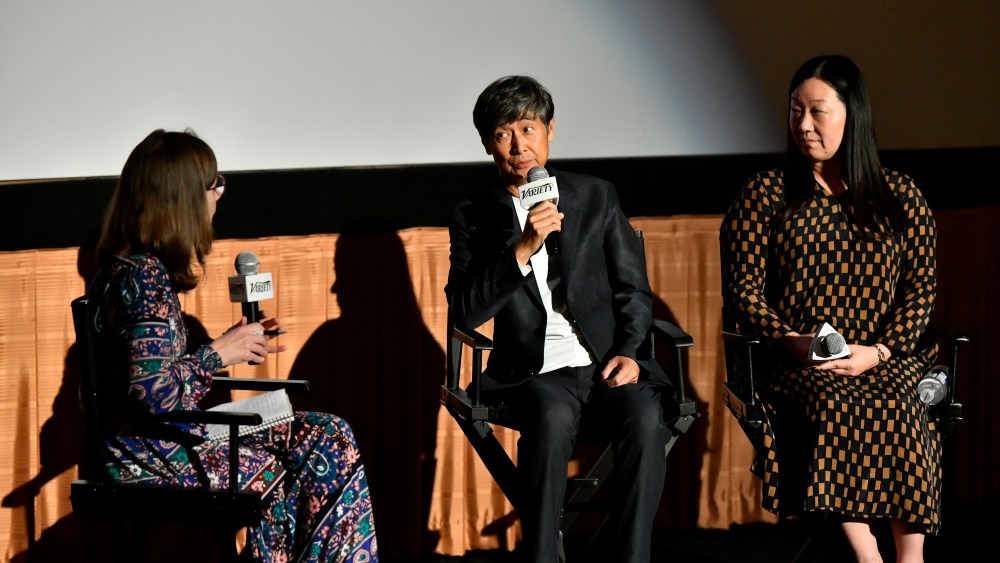Thailand has transformed from a scenic backdrop into one of Asia’s most competitive production hubs, backed by enhanced film incentives and robust infrastructure, according to unit production manager Apinat Obb Siricharoenjit, who presented at the MPA seminar at the Tokyo International Film Festival.
Speaking at the event, the “Alien: Earth” production manager detailed Thailand’s journey from hosting location shoots to becoming a full-service production destination trusted by studios and filmmakers worldwide. The country has successfully increased its film incentive to 30% on local spend without any cap, up from the initial 15% when first introduced in 2017, with an uplift to 20% before the recent increase at the end of last year.
“What you just saw is actually evidence that Thailand is no longer just a backdrop of any film. It’s rather now developed into one of Asia’s most competitive production hub trusted by studios and filmmakers all over the world,” Siricharoenjit said, following a video showcase of films produced in the country.
The production manager, whose company Living Films has put at least 15 films through Thailand’s incentive program and was among the first to utilize it, emphasized that the country’s appeal extends beyond financial incentives. “It’s also the infrastructure, the crew and the creativity of the local people,” he explained.
Thailand’s success stems from collaboration between government agencies and the private sector. The Ministry of Culture’s Department of Cultural Development and the Department of Tourism work alongside Thailand’s film office and private companies, with industry professionals sitting on advisory boards to guide policy development. “Our government recognizes that film is not just art. It is an industry and a bridge to soft power,” Siricharoenjit noted, adding that stable government policies and competitive incentives have been crucial to attracting international productions.
The scale of production activity has created substantial economic impact. “Alien: Earth” alone generated 24,000 jobs across the country, with 1,600 local crew members on weekly payroll and a construction crew of 450 people. The production bought out hotels in Krabi in southern Thailand and chartered planes for the shoot.
Siricharoenjit emphasized the importance of crew pipeline development, noting that local departments have grown from small units to global-scale teams. “Crew became bilingual, trained by working side by side with the best people in Hollywood, Europe, Korea, Japan,” he said. However, he acknowledged challenges when multiple major productions overlap. During “Alien: Earth” production, at least 70% of Thailand’s crew base was employed, and the situation became more strained when “Jurassic World” arrived, bringing 400 crew members to service their shoot and competing for locations.
“Alien: Earth” presented unique challenges that expanded Thailand’s capabilities. “There are departments and sections that we never done in Thailand before, like, for example, we never had a creature department,” Siricharoenjit revealed, explaining how collaboration with international teams helped develop new skills. The elaborate creature eggs featured in the production were crafted by Thai artisans.
Film production continues to drive tourism long after cameras stop rolling. Maya Bay, featured in “The Beach” (2000) starring Leonardo DiCaprio, remains a popular destination despite being “just only a small bay. Actually. It’s really tiny.” The Lebua hotel, which featured in “The Hangover Part II” (2011), still offers a Hangover Suite as one of its best-selling accommodations and serves a Hangover cocktail among its top sellers. More recently, “White Lotus” shot at a property in Koh Samui saw occupancy rates surge after the first two episodes aired, demonstrating “the economic impact of international films.”
The influx of international productions has catalyzed infrastructure development. “The ecosystem starts, and it’s followed with all the vendors, sound stages, rental houses, equipment, base. It’s all growing because of all these international productions that came in, and that’s the demand for it,” Siricharoenjit explained.
The combination of global expertise and local craftsmanship distinguishes Thailand’s offerings. “Art directors with infused local textures, costume teams that understand fabric traditions, crafts people, construction team who built sets. This mix of global skills and local artistry is what makes Thailand truly different,” he said. “Every production leaves more than images on the screen, and film is more than production. It is identity, influence and memory.”
To maintain its super hub status, Siricharoenjit stressed the need for continued evolution. “We must keep incentives competitive and predictable. Speed of approval, transparency of audit, and you must keep improving on the incentive,” he said, adding that the country must continue connecting film to culture. “We must continue trying film to culture, not just action films in Bangkok or epics in jungles, but dramas in historic towns, stories that showcase our creative cities, our crowds and our music. A super hub is not only a service platform, it is also a cultural part.”
















Leave a Reply